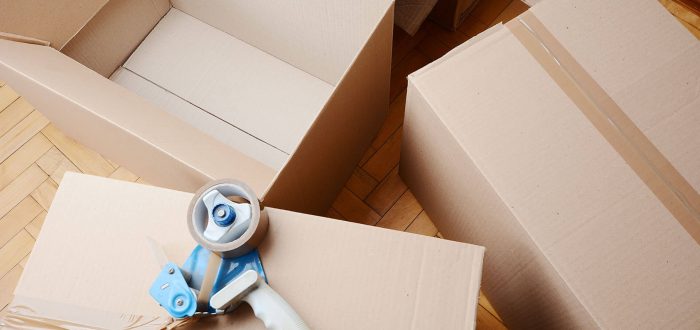

Moving With a Newborn – A Complete Guide for First-Time Parents
Posted in Moving Tips & Tricks on June 15, 2021
Over the past five years, just a little more than 40 million Americans moved yearly. Translated into percentages, 13% of all residents relocate every year. Since housing is one of the main reasons people move, many fresh parents choose to switch their locations. Moving with a newborn might be tricky, but it’s unquestionably manageable.
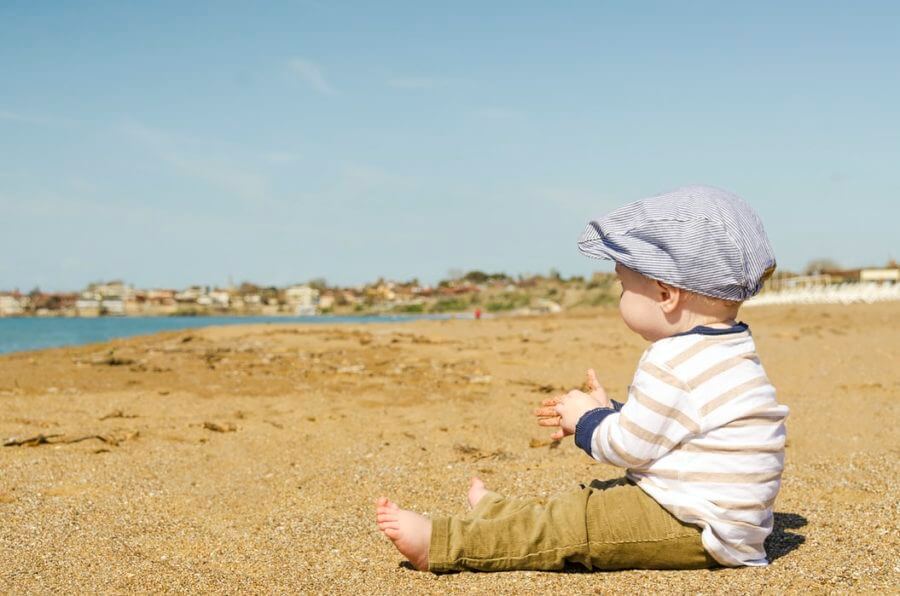
First of all, you will need to plan ahead and strategize – a lot! But if you have a realistic agenda and stick to it, you shouldn’t encounter any major issues. In addition to it, you should seek help from a reputable cross-country moving company. With a professional team by your side, all tasks will be much easier. And, most importantly, the whole process will run safely. Let’s see what you can do to smooth the relocation.
Is It Safe to Move With a Newborn?
When you make up your mind and decide to change your location, you will certainly experience many benefits of relocating. Nevertheless, many worry about relocating with a newly born child. Is this safe? If you plan it properly and do everything in your power to stick to the schedule without messing up the child’s routines, you are good to go. Still, you should make tactics for three main stages – the preparation process, the move itself, and the period after you settle in your new home. Moreover, you should speak to your current pediatrician.
Ask for help from experts – Talking things through is essential, that’s why you should talk to professionals, both medically and when it comes to packaging and transporting your belongings and car shipping. You must consult a doctor before you jumpstart this process. They will offer additional pieces of advice on every bit of the move, including the ways to keep a kid entertained on a plane or during the long ride. As for the cross-country moving services, know that long-distance movers will positively reduce your stress and perform the most tedious tasks on your behalf.
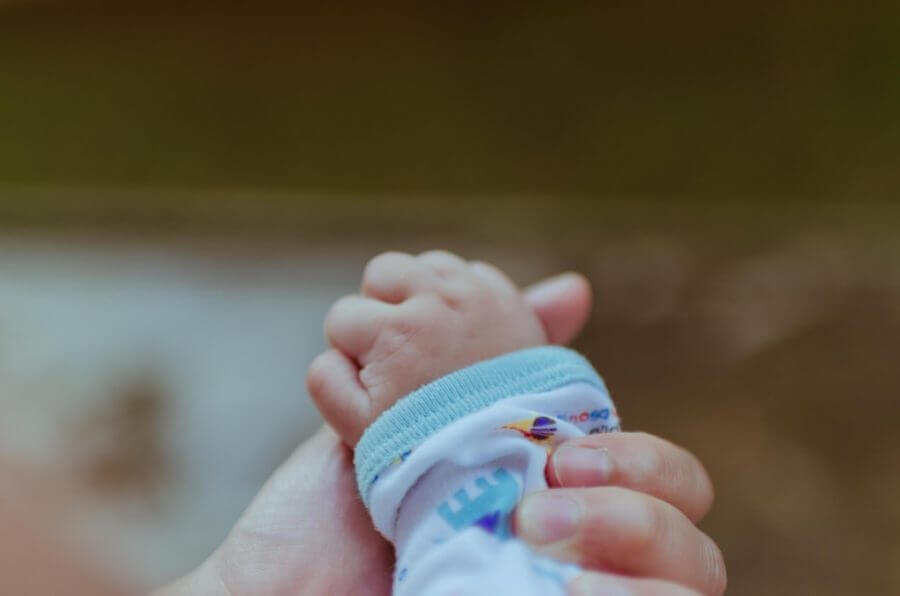
How Soon Can You Move After Having a Baby?
Taking a newly born kid to a brand-new environment requires careful planning and respecting all time frames. Whether in your old residence or a freshly found household, living with an infant is very different from living alone. Although relocation can seem even more demanding in this period, there are a few good reasons to consider it:
- Babies sleep a lot, which can make it easier for you to organize everything and stay on top of the situation,
- You might feel more motivated in this period due to all the instincts that have been awakened recently,
- All of your friends and relatives will be more than happy to help you get packed.
However, it is not advisable to plan it before your chosen pediatrician says it is okay to relocate. Every mom and every newly born child are different. The ideal period for relocation is quite subjective. Most babies wake up during the night frequently during the first 4-5 months. However, many babies develop this habit and stick to it until 9-10 months or even longer. Keep these facts in mind and know what you can expect.
Also, you shouldn’t rush since the relocations are pretty stressful, and you will have to look out after a little human who will seek attention and rely on you completely.
How Long Should You Wait to Leave the House with a Newborn?
Even though many wait for several weeks to take their babies out, the claim that leaving the house harms the infants is not the truth. Surely, there are some exceptions to this, but most babies can actually use some fresh air. And the parents will be pleased as well. Taking an infant for a stroke in nature is almost always a good idea.
If you plan on staying out for a while or taking a trip, you must take everything you might need later. Relocations included – plan them rightly, play it safely, seek guidance, and trust the experts.

Hire Cross Country Movers to Help You Pack
Acquiring a professional packing service is the best idea if you must get packed for a move with a baby. If you are worried about how much movers cost, you should contact several companies to compare services and prices. Also, you can save up by decluttering, donating, and selling some of the unused belongings. Take your time to decide what to keep when relocating and diss the rest. The possessions that are in pretty good shape can be sold online or on a garage sale. Or you could give them away.
If you want to find a reliable long-distance moving company that will match your relocation budget, you must do a meticulous search. Checking our various websites and getting free quotes is a good way to start. However, your research doesn’t end there. Read the reviews and testimonials, and don’t forget to check the FMCSA website to verify that you have found the right ally. That way, you will get to avoid potential relocation scams and overcome a major stressor.
Moving With a Baby – Get the Essentials Packed
Before you start folding, boxing up, or wrapping your stuff, you must create a list of relocation essentials. Now that you have a new family member to take care of, this list will undoubtedly be longer:
- Diapers and wipes (and an extra plastic bag to place the used ones inside it),
- Clothing and pajamas,
- A favorite blanket or a stuffed animal (and a few frequently used toys),
- Breast pump and maybe a cooler if you need it for breastmilk and formula,
- Formula, juice, snacks, or food,
- Sippy cups, bottles, and pacifiers,
- Stroller, carrier, and a car seat,
- Bath items,
- Medications, a first aid kit, and a thermometer.
When you organize your move and your belongings properly, it will be easy to keep track of everything.
DIY Packing When Moving With an Infant – Tips to Get Packed Like a Pro
If you don’t intend to contact a professional team of packers for your relocation, you will need to follow some of the proven tips that will keep you on the right track:
- Making a household inventory list is one of the most significant steps you can take when commencing to prepare for your relocation,
- Start from the storage rooms, work your way through the kitchen, and leave the living room for last,
- Begin the process by boxing up the non-essential belongings first,
- Get enough packing supplies and boxes timely and save yourself the unnecessary struggle with the items that are left unpacked,
- Improvise and save up a few bucks by using old shirts, linens, or unmatched socks to package fragile items,
- Give yourself enough time and space for the kitchen, and pack dishes, plates, and glasses safely and tightly. Get an extra midsize and large box for your pots and pans,
- Make a full list of items before you start to pack your bathroom for the relocation. This step is even more important now when you have a lot of baby stuff in there,
- Think about your wellbeing at all times – use the proven techniques to lift, slide, and shift your furniture and massive objects.
These simple relocation hacks will, beyond the shadow of a doubt, make your life easy. It would be best if you start to prepare at least two months in advance, while you can get packed correctly in a month or so.
And if you wish to keep your little one entertained while you deal with the move, here is a helpful video for DIY soft toys:
Moving Cross Country Before the Baby Is Born – Pros and Cons
If you want to move efficiently, you should be familiar with the perks and downsides of relocating before and after the infant arrives. The main benefits people who choose to move before they become parents name include:
- Many mothers say it’s easier to focus on the chores without having to split their time and attention to watch the baby’s needs,
- They say that the unpacking process is far less demanding and lengthy if they move prior to giving birth,
- Lastly, there will be fewer little (and big) things to package and transport.
Still, there are some disadvantages to take into account. You might have to switch to another healthcare system and get used to another doctor, midwife, and more. Also, the actual date of birth isn’t always fixed. Giving birth can be unpredictable, which is why it is better to stick to a familiar environment and easily accessible medical care.
Discuss Everything Related to the Move with Your Family
It is not enough to cover all of the reasons to move with your family members. You must create a relocation calendar and plan how you will stick together to each point you have listed. Also, if you have a toddler, you should discuss the change with them. They sometimes seem like they don’t understand the “adult stuff,” but you will be surprised by how engaged they can be.
Since you will certainly need a hand with sorting, decluttering, packaging, and cleaning, be sure to cover each of these significant tasks with your partner or another family member.
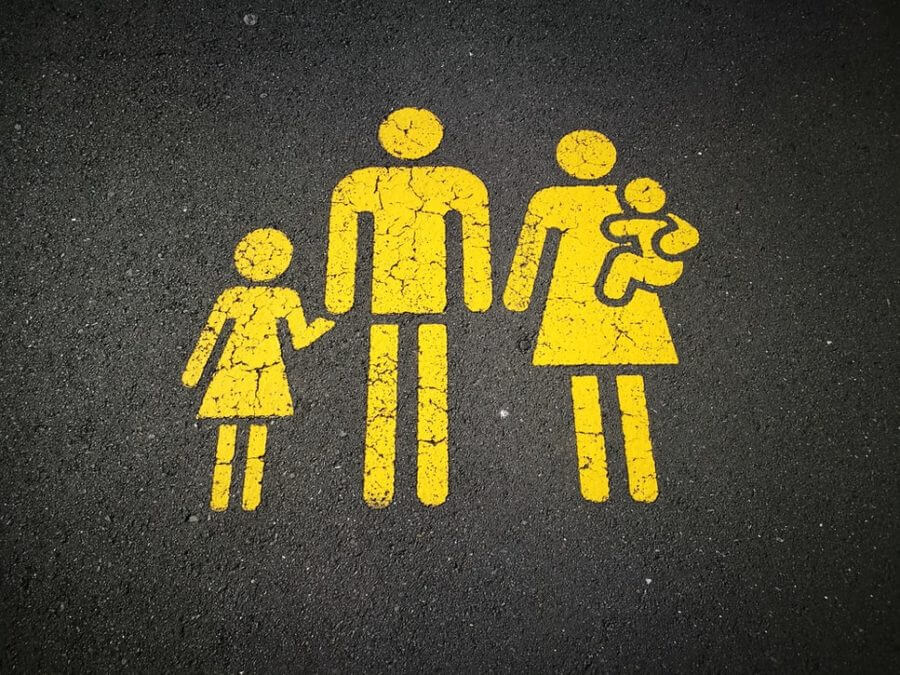
How Do You Survive the First Week With a Newborn?
Every mom has walked more than a mile in your shoes. Every single distress, impediment, concern, or doubt you’re facing – someone’s already been there. If you want to do it correctly without losing your head in the process, this is how you should operate:
- Get stocks and supplies, so you don’t run out of anything,
- Have all the emergency phone numbers close,
- Always be in touch with someone who can come over and assist you or run errands on your behalf,
- Track your baby’s schedule and adjust to it.
Now, if you’ll be moving across country, it is tough to sleep when your infant sleeps. That time will be reserved for watching tutorials about storing Christmas ornaments correctly and getting busy double-checking your to-do lists.
Cross Country Moving Tips for New Moms – After the Arrival
In addition to all of the tasks you will have upon your arrival at your new home, there will be other things to do after relocating when you’re moving with an infant. Safety comes first – you will have to do a lot of baby-proofing! Start by getting a car seat for the move, and work your way toward removing all potential hazards, sharp edges, and other stuff that might harm your infant from home. Keep cleaning supplies away from the kids, and watch out for the daily used objects that can hurt them. Get another set of hands to make the assignments that await more manageable.
Here is how you can secure your residence and make it child-friendly:
- Use child-proof locks on drawers and cabinets that contain any possibly dangerous products or medicine,
- Block stairways and dangerous areas by using safety gates,
- Keep small objects and cleaning supplies away from the kids,
- Secure your windows (and cords on blinds and window treatments), and furniture,
- Install smoke detectors and carbon monoxide alarms, and don’t forget to change the batteries once a year and cover electrical outlets.
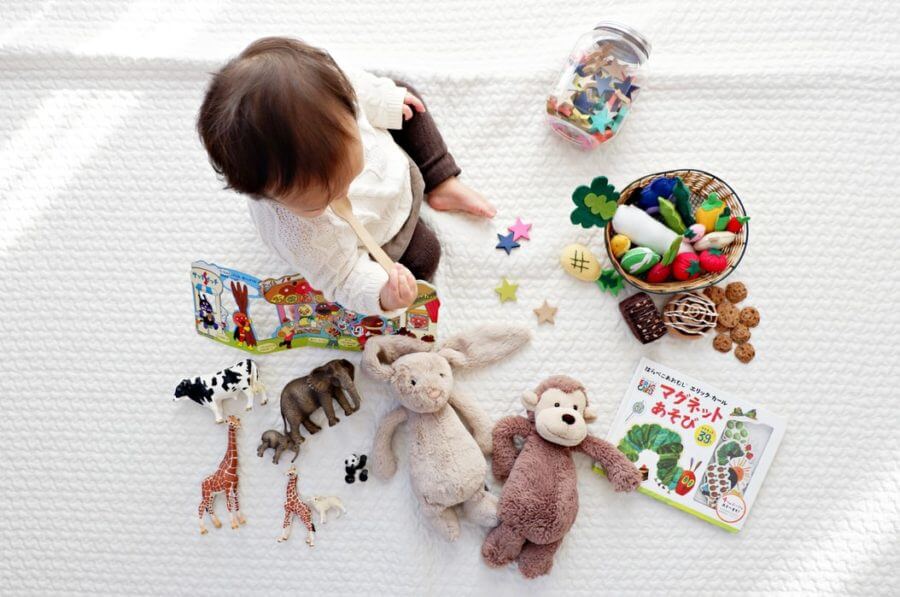
Moving With a Newborn Isn’t Easy – But These Guidelines Will Help!
Follow every long-distance moving tip from our list, and that way, when the relocation day arrives, you will be prepared and confident about your choice. Surround yourself with reliable people you can count on during every step of your move. Don’t do any heavy lifting, and hire a service that will clean the house for you.
Ultimately, when you’re done reading house hunting tips and you’ve found the ideal place, there’s one more task awaiting. You must contact the most trustworthy cross country moving company. Once you do, the only worry that you’ll have left on your hands will be how to tip the movers. Everything else will be done smoothly, and you will be able to direct your attention and energy toward your baby’s well-being.
FAQ
When Is the Best Time to Move With a Newborn?
The best time to move with a newborn is when they are a few months old and have settled into a more predictable routine, and it’s important to consider factors such as the season, distance, and support system when planning the move across country.
How Do I Prepare for a Move With a Newborn?
Cross-country moving with a newborn can be stressful, but careful preparation can help to make the process go more smoothly. Start planning for the move as early as possible. Create a schedule for packing and moving cross country, and make sure you have everything you need in advance. Pack your baby’s items separately from the rest of your belongings so that you can easily access them when needed. On the day of the move, it may be helpful to have a trusted family member, friend, or caregiver take care of your baby so that you can focus on the move.
What Should I Pack for My Newborn for the Move?
When moving with a newborn, it’s important to pack all the necessary essentials. These may include diapers, wipes, formula or breast milk, bottles, a breast pump, blankets, clothes, pacifiers, and any medications or medical equipment your baby requires. It’s also a good idea to pack a first aid kit and any special items your baby is attached to, such as a favorite toy or blanket.
How Can I Keep My Newborn Safe During the Move?
Make sure your baby is secured in a properly installed car seat during the move. While you are packing and moving, keep your baby in a separate room away from the action. Avoid using any harmful chemicals when cleaning or packing. Keep any cleaning products or hazardous materials safely out of reach of your baby.
How Do I Find a New Pediatrician After the Move?
Ask for recommendations from friends, family, or your previous pediatrician. They may be able to recommend a doctor in your new area. Your insurance provider may have a list of pediatricians in your area that are covered by your insurance plan. Additionally, you can do some research online to find pediatricians in your area. Many practices have websites that provide information about their doctors and services.
What Are Some Things to Consider When Finding a New Home With a Newborn?
When finding a new home with a newborn, there are several things to consider to ensure a safe and comfortable living environment. These may include the safety of the neighborhood and home, the availability of nearby services such as medical facilities and grocery stores, the size and layout of the home, the quality of the local school district, and the proximity to family and friends who can provide support.
How Can I Make the Transition to a New Home Easier for My Newborn?
Moving cross-country to a new home can be stressful for both parents and newborns. Try to maintain your baby’s regular routine as much as possible, including feeding and sleeping schedules. Set up your baby’s room with familiar items, such as their crib, toys, and blankets. Spend plenty of time holding, cuddling, and comforting your baby during the transition.
What Are Some Tips for Keeping My Newborn Calm and Happy During the Move?
Babies thrive on routine and sticking to their regular feeding, sleeping, and playtime schedule as much as possible can help them feel more secure during the move. Consider babywearing during the move as it allows you to keep your newborn close to you while you carry out your daily tasks. Reduce noise and distractions as much as possible during the move. If possible, move your baby’s room last, so they have a peaceful and familiar space to sleep in.
How Do I Manage My Own Stress During a Move With a Newborn?
Creating a relocation checklist well in advance can help reduce stress levels. Write down a list of everything you need to do before the relocation, and start packing non-essential items early. Accept help from family, friends, or professional movers. Delegating tasks can help reduce stress and allow you to focus on your baby’s needs. Additionally, keeping your home and belongings organized during the move can help reduce stress levels.
What Should I Do if I Have Trouble Breastfeeding During the Move?
Before the move, make sure you have all the necessary supplies, including nursing bras, breast pads, and a breast pump. Also, research breastfeeding resources in your new community, such as lactation consultants or breastfeeding support groups.
Try to find a quiet and comfortable place to breastfeed your baby. This could be a private room or a designated breastfeeding area if available. If you’re having trouble breastfeeding during the cross-country move, consider pumping and storing your breast milk. This will allow your baby to continue to receive the benefits of breast milk, even if you can’t breastfeed directly.
What Should I Do if My Newborn Gets Sick During the Move?
If your newborn gets sick during the move, it’s important to seek medical attention as soon as possible. Contact your healthcare provider for guidance and follow their instructions carefully. If your baby’s condition is severe or life-threatening, go to the nearest hospital immediately.
How Can I Create a Safe and Comfortable Sleeping Environment for My Newborn in the New Home?
Choose a safe place for your baby to sleep, such as a crib, bassinet, or co-sleeper. Make sure the sleeping surface is firm and free of soft bedding, pillows, or toys. Keep the sleeping area free of clutter and ensure there is enough space for your baby to move freely. Also, make sure that the sleeping area is away from any hazards, such as windows, cords, or drapes. What is more, swaddling your newborn or using a sleep sack can help keep them warm and cozy while they sleep. Make sure that the swaddle or sleep sack is not too tight and allows your baby to move their legs and arms freely.
What Are Some Tips for Introducing My Newborn to a New Environment After the Move?
It’s important to create a calm and peaceful environment for your newborn. Ensure that the temperature, lighting, and noise levels are appropriate for your baby’s comfort. Set up a space for your newborn that is familiar and consistent with their old environment. Try to arrange their room and furniture in a way that is similar to their previous home. Don’t overwhelm your baby with too many new experiences or activities right away. Gradually introduce them to new people, places, and things, and give them time to adjust.
What Are Some Ways to Help My Newborn Adjust to the New Home and Routine?
Keep some things consistent from your previous home, such as your baby’s favorite blanket or toy. Consistency will help your baby feel more secure and reduce any anxiety or stress they may be feeling. Ensure that your baby’s room is comfortable and safe by setting up the crib, changing table, and other essential items. Check for any potential hazards and make any necessary adjustments to ensure your baby’s safety.
What Should I Do if I Have Trouble Getting My Newborn to Sleep in the New Home?
Establish a consistent bedtime routine to help your baby recognize when it’s time to sleep. This may include a bath, feeding, and some quiet time before bed. Ensure that your baby’s room is dark, quiet, and comfortable. Consider using a white noise machine or a calming playlist to help soothe your baby to sleep.


